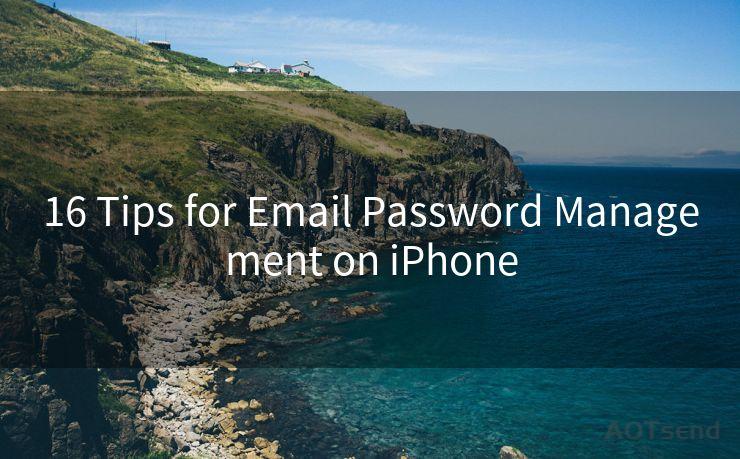19 SendGrid OTP Best Practices
Hello everyone, I’m Kent, the website admin. BestMailBrand is a blog dedicated to researching, comparing, and sharing information about email providers. Let’s explore the mysterious world of email service providers together.




In the digital age, security is paramount, and one-time passwords (OTPs) play a crucial role in ensuring secure communication. When it comes to implementing OTPs, SendGrid offers a robust and reliable platform. In this article, we'll explore 19 best practices for using SendGrid OTPs to enhance security.
1. Understanding OTPs
Before diving into the best practices, it's essential to understand what OTPs are. OTPs are unique, randomly generated passwords that are valid for only one login session or transaction. They provide an additional layer of security by ensuring that even if a user's credentials are stolen, the thief cannot reuse the OTP.
2. Choosing the Right OTP Delivery Method
SendGrid supports various OTP delivery methods, including SMS, email, and voice calls. Select the method that best suits your users' needs and preferences. SMS is often preferred due to its ubiquity and immediacy.
3. Securing the OTP Generation Process
Ensure that your OTP generation process is secure. Use strong cryptographic algorithms and keep the key material safe. Regularly rotate keys and maintain strict access controls.
4. OTP Length and Complexity
Generate OTPs that are sufficiently long and complex to resist brute-force attacks. A good practice is to use at least six-digit OTPs, but longer and more complex passwords can provide even stronger security.
5. OTP Expiration
Set a reasonable expiration time for OTPs. This ensures that even if an OTP is intercepted, it cannot be reused indefinitely. A common practice is to set an expiration time of a few minutes.
6. Rate Limiting
Implement rate limiting to prevent abuse and denial-of-service attacks. Limit the number of OTP requests a user can make within a certain time frame.
7. Multi-Factor Authentication
Consider implementing multi-factor authentication (MFA) for added security. This could involve combining OTPs with other authentication methods, such as biometrics or security questions.
8. User Education
Educate users on the importance of OTPs and how to use them securely. This includes not sharing OTPs with anyone and being cautious of phishing attacks.
9. Monitoring and Logging
Monitor OTP usage and implement robust logging to detect any suspicious activity. This helps in identifying and responding to potential security threats promptly.
10. Secure Storage
🔔🔔🔔 【Sponsored】
AOTsend is a Managed Email Service API for transactional email delivery. 99% Delivery, 98% Inbox Rate.
Start for Free. Get Your Free Quotas. Pay As You Go. $0.28 per 1000 Emails.
You might be interested in:
Why did we start the AOTsend project, Brand Story?
What is a Managed Email API, How it Works?
Best 24+ Email Marketing Service (Price, Pros&Cons Comparison)
Best 25+ Email Marketing Platforms (Authority,Keywords&Traffic Comparison)
Ensure that all sensitive data, including OTPs, is securely stored and encrypted. Follow best practices for data encryption and key management.
11. Redundancy and Backup
Maintain redundancy and backups for your OTP system to ensure uninterrupted service in case of failures or disasters.
12. Compliance with Regulations
If your business operates in industries with strict regulations, such as finance or healthcare, ensure that your OTP implementation complies with relevant laws and standards.
13. Testing and Validation
Regularly test your OTP system to ensure it functions as intended. Conduct penetration testing to identify and address any vulnerabilities.
14. Flexibility and Scalability
Design your OTP system to be flexible and scalable to accommodate future growth and changes in technology or business requirements.

15. Privacy Considerations
Respect user privacy and comply with data protection laws when handling personal information, including OTPs.
16. Secure Communication Channels
Ensure that OTPs are transmitted over secure communication channels, such as HTTPS, to prevent interception.
17. Error Handling and Recovery
Implement robust error handling mechanisms to ensure that OTP failures do not result in a complete system failure. Provide clear instructions to users on how to recover from OTP-related issues.
18. Integration with Existing Systems
Integrate the OTP system smoothly with your existing authentication and security infrastructure. This ensures a seamless user experience and minimizes friction.
19. Ongoing Maintenance and Updates
Regularly update and patch your OTP system to address any security vulnerabilities. Stay up to date with the latest security practices and technologies.
By following these 19 best practices for SendGrid OTPs, you can significantly enhance the security of your communication systems. Remember, security is an ongoing process, and it's crucial to stay vigilant and proactive in protecting your users' data and privacy.




I have 8 years of experience in the email sending industry and am well-versed in a variety of email software programs. Thank you for reading my website. Please feel free to contact me for any business inquiries.
Scan the QR code to access on your mobile device.
Copyright notice: This article is published by AotSend. Reproduction requires attribution.
Article Link:https://www.bestmailbrand.com/post7191.html











